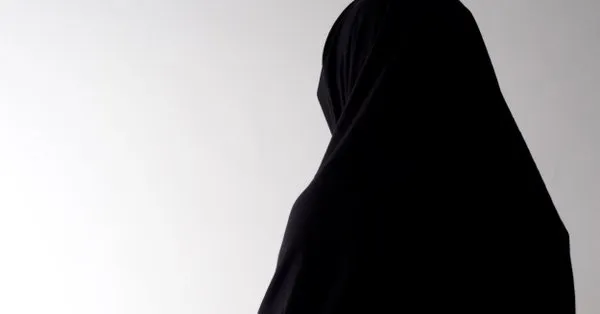By Isaac Atunlute
For many Nigerian women, widowhood means more than just losing a husband-it represents a lifetime of social ostracism, economic ruin, and, sometimes, legal troubles.
If she isn’t blamed for her husband’s death, the widow is caught in a tussle with her in-laws over the deceased’s property, shunned by the neighbours, or even forced into crude mourning practices. In any event, the widow is subjected to public humiliation or physical abuse.
The widows across the country have endured these atrocities for years, often without the law or access to compensation. A survey by the International Federation of Women Lawyers (FIDA) showed that most widows interviewed in certain parts of Nigeria had experienced property seizure, eviction, or abuse following their husband’s death.
Yet something different is unfolding in Lagos.
In celebration of 2025 International Widows Day, the Lagos State government gifted 700 widows ₦50,000 each in cash grants.
While monetary aid alone cannot undo years of discrimination, it’s part of a broader push towards training widows in the skills and the attitude for economic independence.
The initiative, led by the Ministry of Women Affairs and Poverty Alleviation (WAPA), is based on the Livelihood Economic Empowerment Programme (LEEP) — a four-week vocational training programme conducted across all five divisions of Lagos – Ikeja, Badagry, Ikorodu, Lagos Island, and Epe to ensures that widows from every part of the state can access practical, life-improving skills close to home.
Through it, widows can learn practical, marketable skills like soap-making, fashion designing, catering, tie & dye, and hairdressing.
Knowing that widows often shoulder the responsibility of both caregivers and breadwinners, LEEP is timely and sensible. Additionally, the programme also provides start-up kits and access to credit through its Lagos Micro-Enterprise Support Initiatives.
Furthermore, all the participants are equipped with a start-up kit and linked with micro-grants or low-interest loans under the Lagos Micro-Enterprise Support Initiative, a critical backing that ensures the training does not lead to only certificates, but to real earnings.
And that is not all.
WAPA offers legal advice and psychosocial guidance through its family social service and domestic violence unit, addressing the lesser-seen but equally damaging emotional and legal expense of widowhood.
But what’s notable here is not so much government intervention, it’s the broader trend that it’s part of.
The past decade has witnessed a peaceful but gradual emergence of civil society organizations advancing the rights of widows in Nigeria.
Organisations like Women Advocates Research and Documentation Centre (WARDC) and Project Alert have worked across states to lobby for legislative reforms, create emergency shelters, and conduct education for widows on their inheritance rights under Nigerian law.
Others, like the Rose of Sharon Foundation founded by entrepreneur Folorunsho Alakija, offer scholarships to children of widows, microcredit to women entrepreneurs, and health outreach programs.
These projects, while scattered and often under-resourced, have created a patchwork of support systems that give the widows something they have long been denied, visibility, agency, and choice.
But there are still challenges: in rural areas, customary law still overrides statutory protections. Legal rights, even when guaranteed on paper, are rarely enforced.
Widows themselves are usually unaware of their legal rights, and where legal assistance is provided, access to it may involve money, mobility, and literacy that most widows do not possess.
That is why Lagos’ model matters. It is not just about disbursing aid. It is about establishing a replicable framework that treats widowhood not as a permanent mark of loss but as a phase that can be softened by skills acquisition, credit access and legal support.
Still, success hinges on scale and sustainability. For every one of the 700 widows helped in Lagos, thousands more across the state—and millions nationwide—are still waiting.
Programmes like LEEP will only make lasting progress through stable funding, statewide expansion, and partnerships with NGOs and the private sector.
In Lagos, widowhood is being redefined not as a destination but as a new beginning. With the right tools, these women can do more than survive—they can thrive.
In Nigeria, widowhood often leads to significant social and economic challenges, such as ostracism, property disputes, and forced mourning practices. Widows have traditionally lacked legal support, facing abuse and property loss. However, a change is emerging in Lagos, where the government, through initiatives like the Livelihood Economic Empowerment Programme (LEEP), provides widows with vocational training and monetary aid to foster economic independence. This program offers skills training in various crafts and provides start-up kits and access to credit, empowering widows as both caregivers and breadwinners.
Beyond government intervention, civil society organizations are advocating for widows' rights by lobbying for legal reforms, offering emergency shelters, and educating women about their inheritance rights. Despite efforts, many widows remain unaware of their legal rights or unable to access them due to lack of resources. The example set in Lagos, focusing on skills acquisition, credit access, and legal support, aims to transform widowhood into a new beginning rather than a permanent loss. However, the success of such initiatives depends on sustainable funding, expansion, and collaborations with NGOs and private entities, as many more widows across Nigeria still need support.






